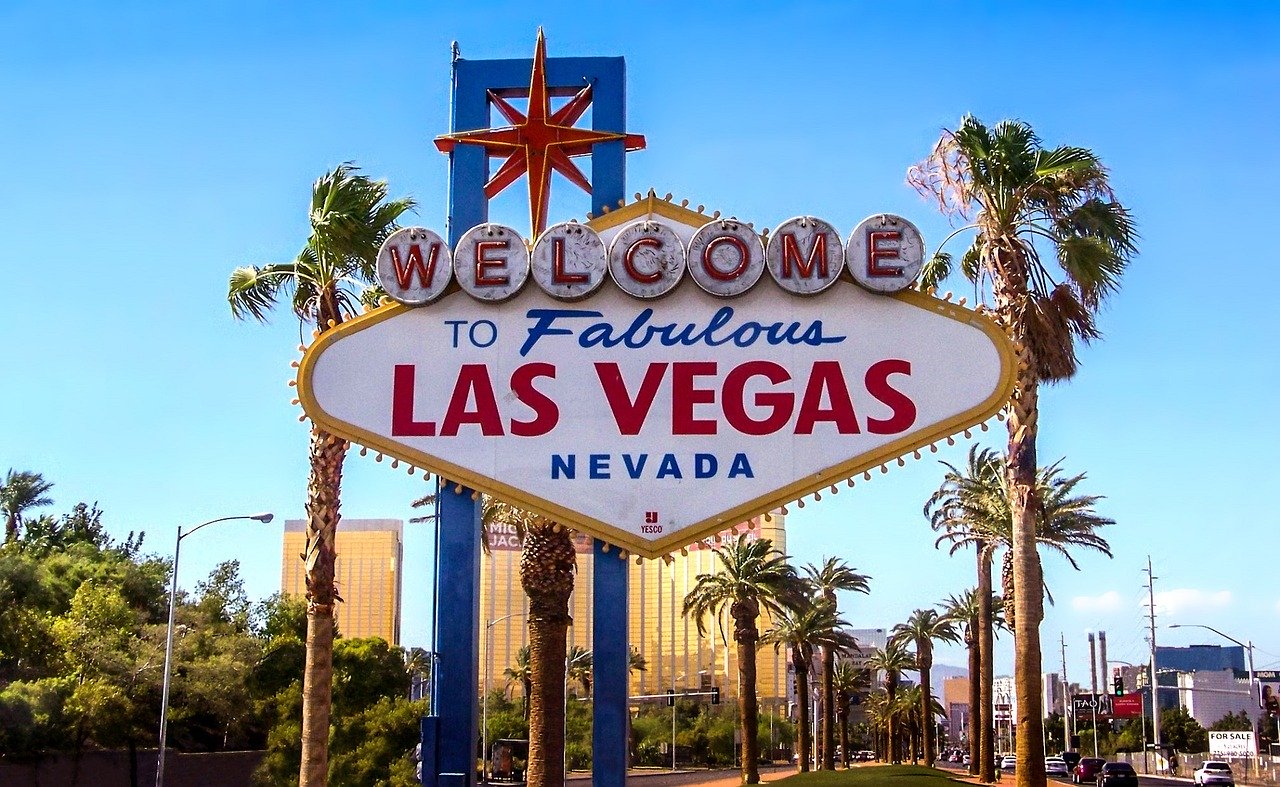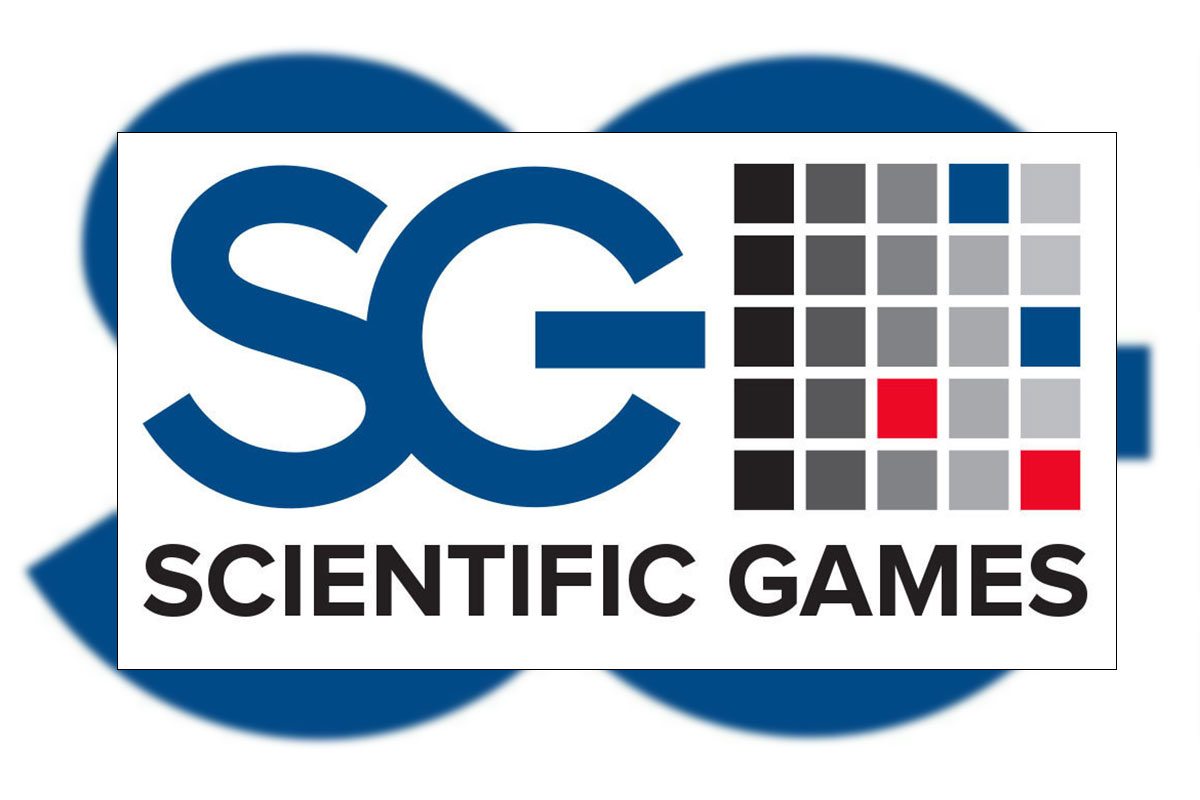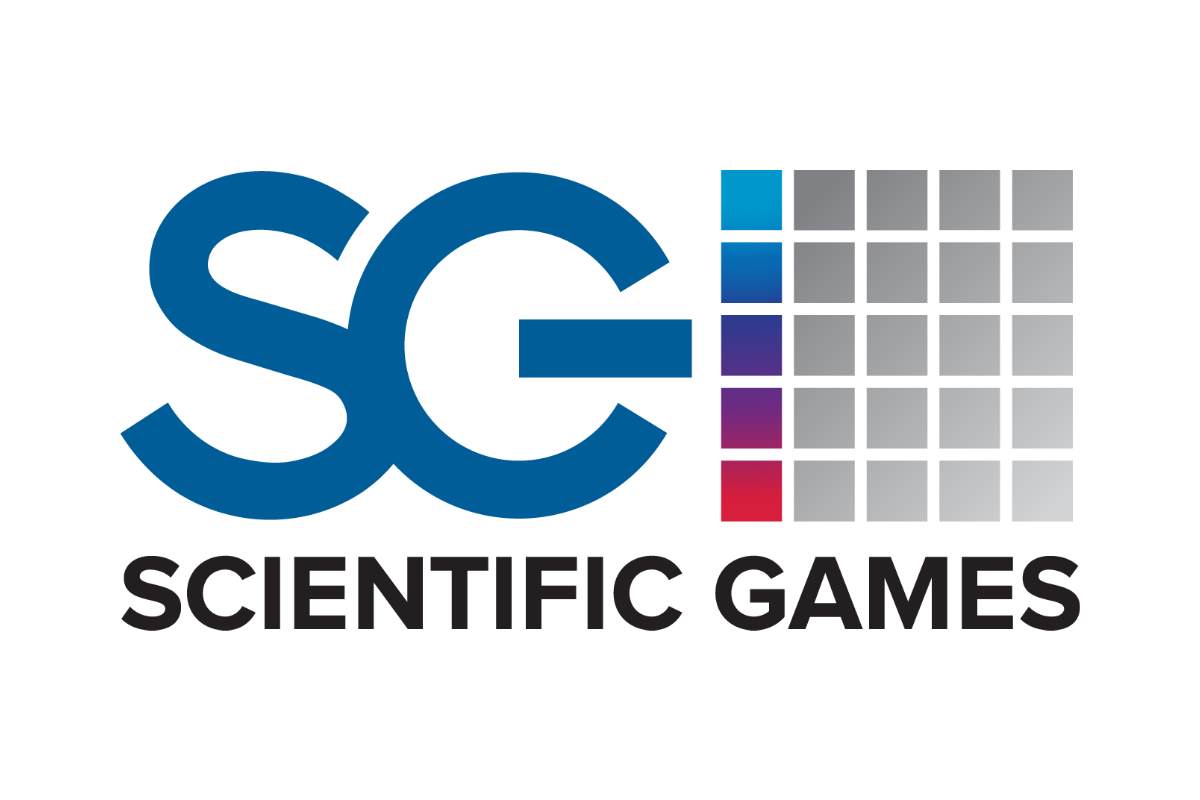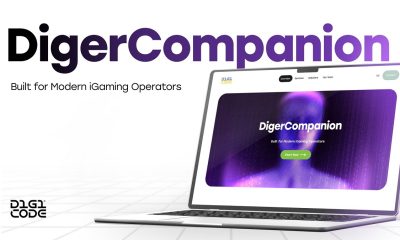Gambling in the USA
LAS VEGAS – RE-LAUNCH OF THE STRIP, an important discussion at Sports Betting & Casino Summit North America 2020

The top industry companies have all confirmed their interest to join the Sports Betting & Casino Summit North America (Virtual Conference), which will open its virtual doors between 23-24 June
The virtual seats are limited, so hurry and register now to secure your seat(s)! REGISTER HERE
Lasvegassun.com has released an interesting editorial which is titled “Sights and sounds of Vegas give us hope for a full recovery”, and we can directly tie this piece with one of the most interesting land-based industry related panel discussions at Sports Betting & Casino Summit North America (Virtual Conference).
After the Bellagio fountains are now back to life with a playing of “Simple Gifts” to honor the Las Vegas front-liners who have protected the city during the pandemic, MGM Resorts International made another spot-on choice for the follow-up song. This is of course an anthem of the fabulous city, “Viva Las Vegas”.
Las Vegas is already booming and WADE VANDERVORT, of Lasvegassun.com wrote it so beautifully as we would not change anything:
“…it was a godsend to see waters dancing, lights twinkling and guests coming through the doors in the resort corridor and downtown. After 78 days of eerie quiet, Las Vegas took its first steps to recovery.
It’s a moment of hope and a reminder that our community has rebounded from crisis and tragedy before.”
Besides the Bellagio fountains, the gondolas are also gliding along the faux canals at The Venetian.
Up and down Las Vegas Boulevard, from Wynn Las Vegas at the north end to New York-New York and MGM Grand on the south end, gamblers are sliding bills into slot machines and wagering chips at blackjack and roulette tables.
Life is slowly returning to normal in Sin City.
As mentioned above, at Sports Betting & Casino Summit North America (Virtual Conference) we will discuss the subject, and the “LAS VEGAS – RE-LAUNCH OF THE STRIP” panel discussion has some very important guests who are joining us on the 23rd of June to share their insights.
The panel discussion is joined by Jay Kornegay (Vice President Race & Sports Operations – Westgate LV Resort & Casino), Seth Schorr (CEO of Fifth Street Gaming and Chairman of Downtown Grand Hotel & Casino) and Matthew Holt (President at U.S. Integrity), and will be moderated by Benjie Cherniak (Managing Director of SG Digital’s Don Best Sports group).
Do not miss this unique opportunity to attend a virtual conference that gathers all North American gaming industry experts for 2 days of discussions and networking. Register your seat now!
Jay Kornegay – Vice President Race & Sports Operations – Westgate LV Resort & Casino
Jay Kornegay is Vice President of the LVH – Las Vegas Hotel & Casino SuperBook. He has more than 26 years experience in the race and sports book industry. Jay graduated from Colorado State University in 1987 with a bachelor’s degree in Restaurant Business Management. Always intrigued by gaming, Jay moved to Nevada later that year to start his path in that field.
Starting in Lake Tahoe and soon afterwards moving to Las Vegas, Jay has worked at four major sports books. He opened the Imperial Palace sports book in 1989, which soon turned into one of the more popular sports books in the state of Nevada.
In 2004, Jay took the reins of the LVH SuperBook. As the world’s largest race and sports book with over 30,000 square feet, the SuperBook is one of the top sports books in Nevada. Over the years, the SuperBook has won numerous awards and often represents the Las Vegas market with national media outlets. It is known for its aggressive nature and being a player-friendly book by offering fair odds to guests. The LVH SuperBook is also known for offering Nevada’s largest wagering menu by posting many 2nd/3rd tier sports, as well as having an international flavor. In addition, the SuperBook hosts the “SuperContest,” which is recognized as the most prestigious pro football handicapping contest. For the fourth consecutive year, the “SuperContest” set a record for number of entries and marked the most entries ever this past football season at 1034.
Jay resides in Las Vegas with wife Pam, daughter Cara and son Nicholas. He is also well known for shooting a 36 on the front nine and a 59 on the back nine.
Seth Schorr – CEO of Fifth Street Gaming and Chairman of Downtown Grand Hotel & Casino
Seth Schorr is CEO of Fifth Street Gaming and Chairman of Downtown Grand Hotel & Casino. The urban casino resort is the embodiments of Schorr’s vision to create a downtown Las Vegas hospitality experience delivering a superior guest experience and a genuine sense of community.
Since beginning his career in gaming and hospitality in 1991, Schorr served as an integral member of the Wynn Resorts team, developing the international marketing department in Macau, the interactive gaming division, and The Wynn Collection of Fine Art. Earlier in his career, Schorr also worked in numerous capacities at Mirage Resorts including positions at Bellagio Hotel & Casino, The Mirage Hotel & Casino, and Treasure Island Hotel & Casino.
Schorr and his partner, Jeffrey Fine, co-founded Fifth Street Gaming which owns and operates five casinos. The principals of Fifth Street Gaming also control, through its affiliate, the LEV Restaurant Group, a food and beverage operation that owns and manages more than 50 restaurants in the Las Vegas area and Southern California including The Coffee Bean & Tea Leaf, Jamba Juice, Lobster ME, JaBurritos, Daily Kitchen, Evel Pie, and Golden Tiki.
In early 2015, Schorr was introduced to the world of eSports and lead the effort of developing the first fully integrated eSports program in a casino resort at The Downtown Grand. The Downtown Grand’s eSports program has included weekly eSports contests, team residencies and sponsorships, a weekly broadcast and professional tournaments. Schorr sits on the board of GameCo and advised on the development and launch of the world’s first video game slot machine. In 2017 Schorr launched Commercial Streaming Solutions which developed a patent-pending media platform, KonekTV, that provides streaming content, including Esports and sports betting content, to retail venues. Schorr is a founder of the Nevada Esports Alliance and continues to be a leader in the convergence of Esports and sports gambling. Schorr is the co-founder of The Strategy Organization: a Modern Gaming and Hospitality consulting firm.
Schorr is a graduate of the University of Pennsylvania, is a member of YPO and sits on numerous boards including those for The Las Vegas Natural History Museum, Nevada Restaurant Association, Jewish Federation of Las Vegas, the Advisory Board of The Smith Center for Performing Arts, One Night for One Drop and was appointed by Governor Sandoval to serve on Nevada State Board of Museums & History. He is also an executive board member and Chairman of the Communications Committee of the Downtown Las Vegas alliance. Schorr is an avid cyclist, amateur photographer and has two little angels Dax (10) and Mia (9). Most importantly, Schorr recently married Dr. Emily Schorr.
Matthew Holt – President at U.S. Integrity
Originally from New Hampshire, Mr. Holt originally honorably served in the United States Air Force. Once completing his term in the Air Force Mr. Holt attended Morehead State University, obtaining a sports marketing degree before taking up residence in Las Vegas, Nevada. Mr. Holt founded U.S. Integrity, LLC. based out of Las Vegas, Nevada. U.S. Integrity is the gold standard of game integrity and fraud prevention services in the United States. Mr. Holt and his team at US Integrity have built innovative, technology based solutions that allow for easy accessible data and analytics for fraud prevention and game integrity monitoring.
Benjie Cherniak – Managing Director of SG Digital’s Don Best Sports group
Benjie Cherniak is the Managing Director of SG Digital’s Don Best Sports group, a leading provider of sports information products and services relevant to the North American sports betting industry. Benjie oversees the company’s sports information platform, automated data distribution, live pricing, and ancillary consulting services.
Following the acquisition of Don Best by Scientific Games, Benjie has accelerated the growth of OpenBet, the company’s sports betting platform, by integrating Don Best’s world-class pricing services into the technology. Don Best’s trading and pricing expertise have seamlessly become an integral part of SG Digital’s core offering.
Prior to joining Scientific Games, Benjie spearheaded Don Best’s international growth via tailored solutions to tier-one sportsbook operators in the United States, Europe, Asia, Latin America and beyond. Under Benjie’s supervision, Don Best introduced (a) a proprietary pricing product for North American based sports that rapidly established itself as the industry standard; and (b) a data integrity offering to assist North American based sport leagues in identifying potential fraudulent betting patterns.
With 15 years of industry experience, Benjie is a leading voice in the emerging US sports betting industry from both an operational and legislative perspective.
Powered by WPeMatico
Gambling in the USA
IGT Games Deliver Giant Million-Dollar-Plus Jackpots in January

IGT announced that its Wheel of Fortune Slots, Powerbucks, and MegaJackpots games awarded four momentous jackpots in January.
Lucky slots players won the following million-dollar-plus jackpots last month:
• On January 5, a Wheel of Fortune Slots player won $1,132,199 playing Wheel of Fortune Super Cash Link at Beau Rivage Resort & Casino in Biloxi, Miss.
• On January 8, a Powerbucks slots player won CA$1,657,823 playing Whitney Houston Powerbucks slots at Lake City Casino Vernon in British Columbia, Canada.
• On January 15, a Powerbucks slots player won CA$1,056,637 playing Gong Xi Fa Cai Grand at ACE Casino Red Deer in Alberta, Canada.
• On January 18, an online slots player won $1,247,834 playing MegaJackpots Cash Eruption on Caesars Palace Online Casino in New Jersey.
Wheel of Fortune slots have minted over 1200 millionaires and awarded over $3.6 billion in jackpots since their launch in 1996. IGT Powerbucks slots have paid 74 jackpots of CA$1 million or more since their Canadian debut in 2016.
The post IGT Games Deliver Giant Million-Dollar-Plus Jackpots in January appeared first on Americas iGaming & Sports Betting News.
AI in lottery
Scientific Games Appoints Rich Wasserman as Senior Vice President of Product Engineering

Scientific Games has appointed Rich Wasserman as Senior Vice President of Product Engineering, reinforcing its commitment to advancing lottery systems technology and digital innovation.
Based in Atlanta, the global lottery provider continues to expand its technology leadership as one of the fastest-growing suppliers of retail and digital lottery solutions worldwide.
Leadership Experience from Amazon, Facebook and Stitch Fix
Wasserman brings more than 20 years of experience leading engineering, data science and product teams across high-performance technology platforms.
He previously held senior leadership roles at:
- Amazon
- Stitch Fix
At Stitch Fix, he served as Vice President of Engineering and Data Science, leading automation, AI-driven systems and platform optimization initiatives. Wasserman holds a Ph.D. in Electrical Engineering and a Computer Science degree from the University at Buffalo.
Driving Innovation Across Global Lottery Platforms
In his new role, Wasserman will oversee Product Engineering across Scientific Games’ global portfolio serving more than 150 government-regulated lotteries. His responsibilities include advancing:
- Retail lottery systems
- Digital lottery platforms
- Hardware and software innovation
- Data analytics and AI capabilities
- Consumer engagement technologies
CEO Pat McHugh stated that Wasserman’s experience scaling AI-powered platforms at world-class technology firms will help accelerate innovation and deliver next-generation lottery solutions focused on sustainable growth.
Strengthening Lottery Technology Leadership
Scientific Games continues to invest in technology, analytics and digital transformation to enhance consumer experiences across retail and online lottery channels. The appointment underscores the company’s strategy to integrate advanced analytics and machine learning into its global lottery ecosystem.
The post Scientific Games Appoints Rich Wasserman as Senior Vice President of Product Engineering appeared first on Eastern European Gaming | Global iGaming & Tech Intelligence Hub.
Gambling in the USA
Scientific Games Appoints Rich Wasserman as Senior Vice President of Product Engineering

Former Amazon, Facebook and Stitch Fix Exec to Lead Product Engineering for Global Lottery Provider
Scientific Games has named Rich Wasserman as Senior Vice President of Product Engineering. Wasserman brings more than 20 years of experience leading global engineering, data science and product organizations across complex, high-performance technology platforms.

As the industry’s fastest-growing lottery systems technology provider, Scientific Games continues to invest in technology and talent to deliver seamless consumer experiences across lottery retail and digital channels.
Wasserman previously held senior leadership roles at Amazon and Facebook, where he led large-scale systems powered by advanced analytics and machine learning. Most recently, he served as Vice President of Engineering and Data Science at Stitch Fix, leading integrated teams focused on automation and platform optimization. Wasserman holds a Ph.D. in Electrical Engineering and a degree in Computer Science from the University at Buffalo.
In his new role, Wasserman will lead Product Engineering across Scientific Games’ global product portfolio serving government-regulated lotteries, advancing hardware and software platforms to accelerate innovation, expand analytics capabilities and consumer-engagement to deliver long-term value for lottery customers worldwide.
“We’re excited to add Rich’s deep technical expertise scaling innovative, AI-driven platforms at world-class organizations to further strengthen Scientific Games’ technology leadership,” said Pat McHugh, Chief Executive Officer of Scientific Games. “As we continue investing in innovation and analytics across retail and digital lottery solutions, his experience and leadership will help us deliver the next generation of high-performance products that drive sustainable growth for our lottery customers worldwide.”
Scientific Games serves more than 150 lotteries globally with a comprehensive portfolio of retail systems, digital platforms, instant games and analytics solutions.
© 2026 Scientific Games, LLC. All Rights Reserved.
The post Scientific Games Appoints Rich Wasserman as Senior Vice President of Product Engineering appeared first on Americas iGaming & Sports Betting News.
-

 Baltics7 days ago
Baltics7 days agoHIPTHER Baltics Launches in Vilnius with Agenda Revealing Lithuania’s 2026 Regulatory Reset
-

 Andrew Cardno7 days ago
Andrew Cardno7 days agoQCI Launches its Data Community Platform in Australia
-

 Amusnet7 days ago
Amusnet7 days agoAmusnet Enters into Strategic Partnership with Twinsbet Arena in Vilnius, Lithuania
-

 Latest News7 days ago
Latest News7 days agoSpinomenal Debuts Magical Genie — 3×3 Hold & Hit Adventure
-

 AI-Powered Compliance and Player Support7 days ago
AI-Powered Compliance and Player Support7 days agoDigerCompanion — Digicode’s AI Solution for Compliance and Player Support in Regulated iGaming
-

 Free spins7 days ago
Free spins7 days agoOnlyPlay Releases Pub Fruits
-

 Brazil7 days ago
Brazil7 days agoOctoplay Enters Brazilian Market Through a Strategic Partnership with Superbet
-

 BIS SIGMA6 days ago
BIS SIGMA6 days agoBrazil between expansion and fiscal pressure



















